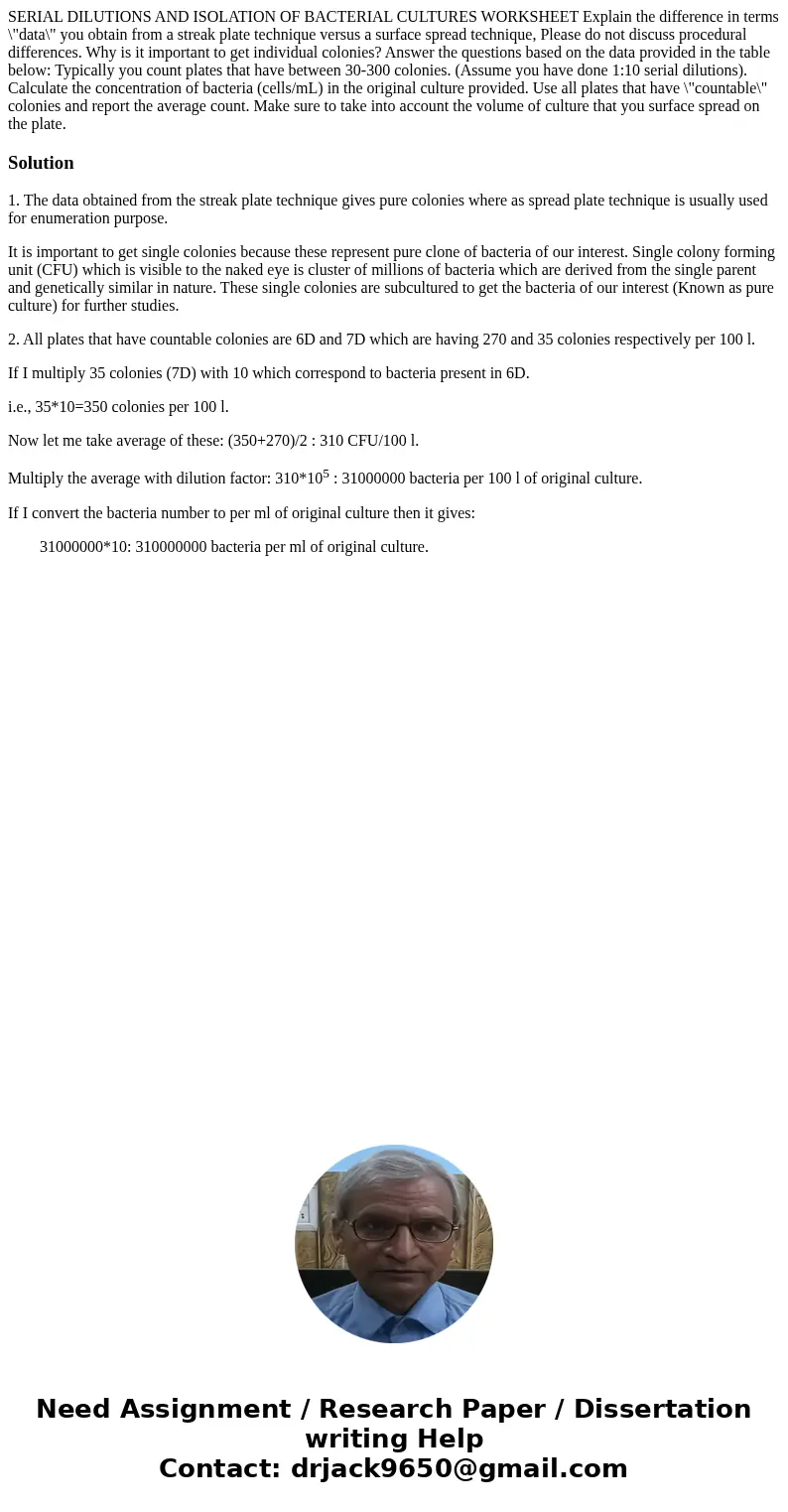SERIAL DILUTIONS AND ISOLATION OF BACTERIAL CULTURES WORKSHE
Solution
1. The data obtained from the streak plate technique gives pure colonies where as spread plate technique is usually used for enumeration purpose.
It is important to get single colonies because these represent pure clone of bacteria of our interest. Single colony forming unit (CFU) which is visible to the naked eye is cluster of millions of bacteria which are derived from the single parent and genetically similar in nature. These single colonies are subcultured to get the bacteria of our interest (Known as pure culture) for further studies.
2. All plates that have countable colonies are 6D and 7D which are having 270 and 35 colonies respectively per 100 l.
If I multiply 35 colonies (7D) with 10 which correspond to bacteria present in 6D.
i.e., 35*10=350 colonies per 100 l.
Now let me take average of these: (350+270)/2 : 310 CFU/100 l.
Multiply the average with dilution factor: 310*105 : 31000000 bacteria per 100 l of original culture.
If I convert the bacteria number to per ml of original culture then it gives:
31000000*10: 310000000 bacteria per ml of original culture.

 Homework Sourse
Homework Sourse